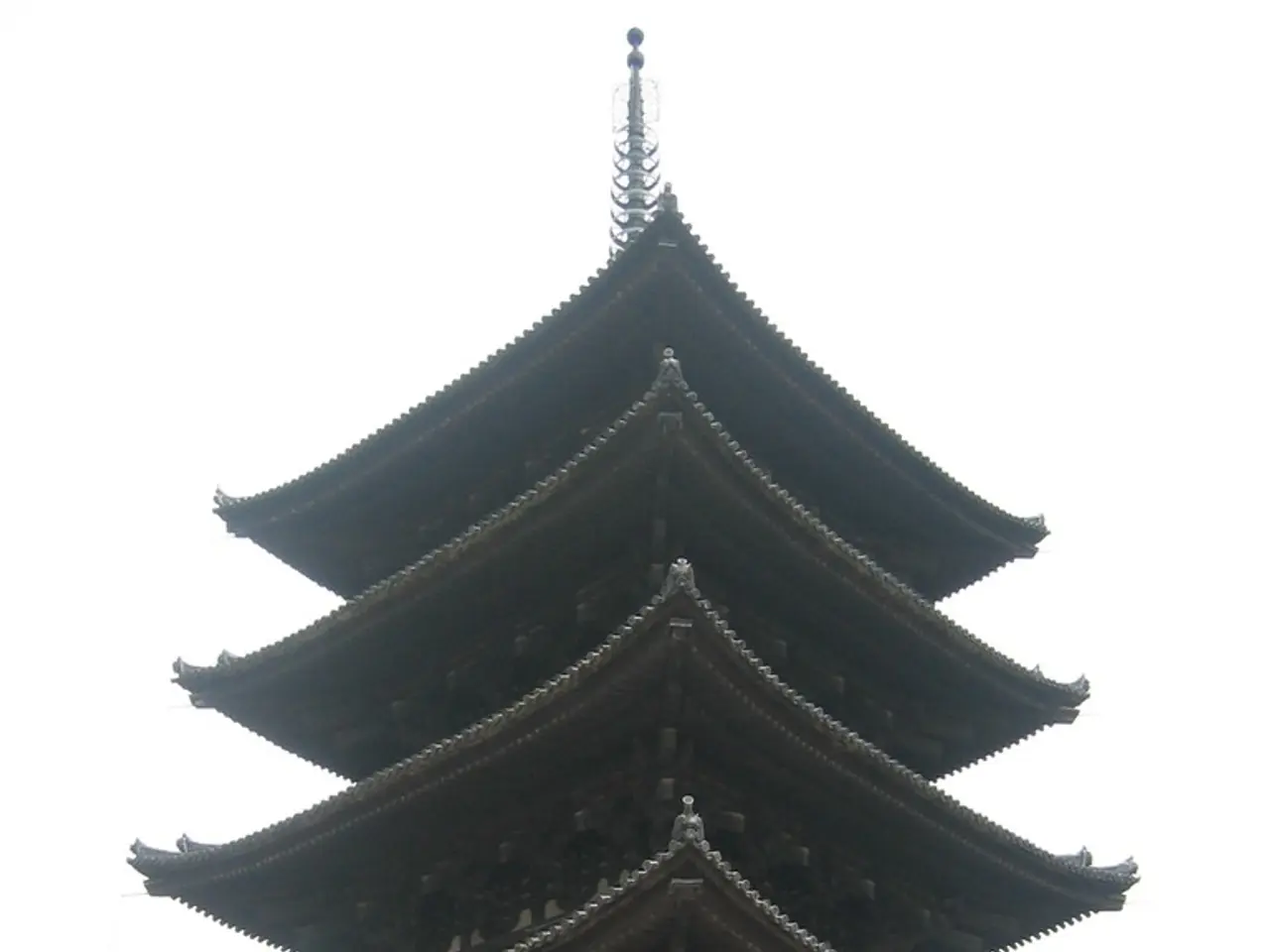Nvidia's Progress Resumes in China: Crucial Details Unveiled
In a significant development, Nvidia has been granted permission by the U.S. Bureau of Industry and Security (BIS) to export its H20 chips to China. This decision comes after meetings between Nvidia CEO Jensen Huang and former President Donald Trump in 2025.
The decision is expected to pave the way for Nvidia to start deliveries of the H20 chip in China soon. In fact, the tech giant is already in the process of applying to sell the H20 chip in China again, and has been assured by the U.S. that licenses will be granted.
The potential re-entry into the Chinese market is crucial for Nvidia, as it represented 13% of its total sales last year. The Chinese market, with its vast potential, could offer a significant boost to Nvidia's overall growth.
Nvidia's business has been strong, largely due to its dominance in the global AI chip market. The company designs the most powerful AI chips on the market, and its brand strength, coupled with its interest in designing products specifically for China, could keep the momentum going, even with restrictions on the level of technology it can deliver to China.
The U.S. market represents nearly 47% of Nvidia's sales, but the Chinese market, at 13%, could offer a significant boost to overall growth. In fact, China's AI market is projected to reach about $50 billion over the next couple of years, according to Nvidia's CEO.
The positive developments for Nvidia in the Chinese market could fuel stock price gains today and over the long term. Nvidia's stock has soared 980% over the past three years, and the company's revenue has soared in the double and triple digits.
However, Nvidia faced a halt to exports to China due to U.S. export controls on advanced AI chips, which was a significant problem for the company recently. To address this issue, Nvidia has created a new, fully compliant chip, the RTX PRO GPU, for digital twin AI.
However, if Nvidia remained blocked from China, local rival Huawei might jump ahead in China and potentially interfere with Nvidia's position in other international markets. This is because customers in China have consistently sought out Nvidia chips, suggesting strong demand for the company's products in the region.
Moreover, sales for Nvidia have been at a high level of profitability. However, Nvidia took a charge of $4.5 billion in the latest quarter on chips it could not sell in China. The ability of Nvidia to sell to China is likely to bring billions of dollars in revenue for the company in the years to come.
In conclusion, the U.S.'s decision to allow Nvidia to export its H20 chips to China is a positive step for the company. It opens up a significant market for Nvidia, one that could boost its growth and profitability in the coming years.
Read also:
- Understanding Hemorrhagic Gastroenteritis: Key Facts
- Trump's Policies: Tariffs, AI, Surveillance, and Possible Martial Law
- Expanded Community Health Involvement by CK Birla Hospitals, Jaipur, Maintained Through Consistent Outreach Programs Across Rajasthan
- Abdominal Fat Accumulation: Causes and Strategies for Reduction







